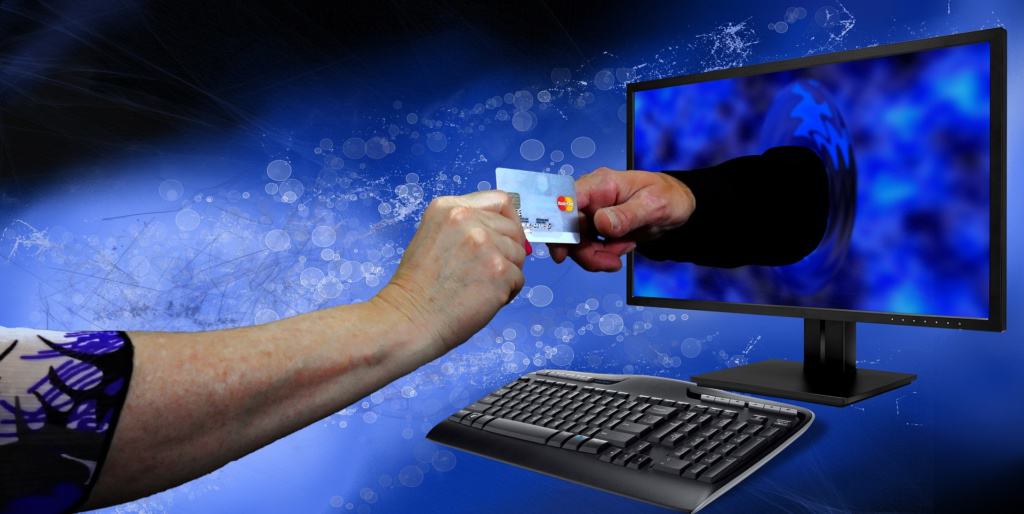Last Updated on May 22, 2024 by Archie Biggs
Key Highlights
Key Highlights:
- Credit cards for bad credit can help individuals rebuild their credit score and improve their financial situation. These cards often come with features such as a low credit limit, a refundable deposit, and an annual fee.
- Secured credit cards are a popular option for people with bad credit. These cards require a refundable security deposit, which serves as collateral for the credit card issuer. By using a secured credit card responsibly, individuals can improve their credit score over time.
- One the important factors to consider when choosing a credit card for bad credit is the annual fee. Some cards may have a higher annual fee, while others may have no annual fee. It is important to weigh the benefits and drawbacks of each card and determine which one is the best fit for your financial situation.
- Credit limit is another important factor to consider. Some credit cards for bad credit may offer a higher credit limit, while others may have a lower credit limit. It is important to choose a credit card with a credit limit that meets your spending needs and allows for credit utilization to improve your credit score.
- Cash back rewards can be a valuable feature of credit cards for bad credit. Some cards may offer cash back on purchases, allowing individuals to earn rewards while rebuilding their credit. It is important to read the terms and conditions of these rewards programs and choose a card that offers the most value for your spending habits.
Building a good credit score requires responsible credit card usage. This includes making payments on time, keeping your credit utilization low, and managing your credit cards effectively. By following these practices, individuals with bad credit can gradually improve their credit score and financial standing
Introduction
In today’s society, having a good credit score is essential for financial success. A good credit score opens doors to lower interest rates, better loan options, and increased financial opportunities. However, for individuals with bad credit, obtaining a credit card can be challenging. Traditional credit card issuers are often hesitant to extend credit to those with a low credit score. Fortunately, there are credit card options available specifically designed for individuals with bad credit.
Credit cards for bad credit, also known as subprime or secured credit cards, can provide individuals with an opportunity to rebuild their credit score and improve their financial situation. These credit cards are specifically tailored to meet the needs of individuals with less-than-perfect credit. They often come with features such as a low credit limit, a refundable security deposit, and an annual fee. While these credit cards may not offer the same rewards and benefits as prime credit cards, they can be an effective tool for rebuilding credit. In this article, we will explore the top picks for credit cards for bad credit in 2024. We will discuss the key features and benefits of these cards, as well as provide tips and strategies for effectively managing your credit card. Whether you are looking to rebuild your credit or establish credit for the first time, this article will provide you with the information you need to make an informed decision about the best credit card for your financial situation.

Best Credit Cards for Individuals with Bad Credit in 2024
When it comes to credit cards for individuals with bad credit, there are several options available. In 2024, some of the best credit cards for bad credit include the Discover it Secured Credit Card, the Capital One Platinum , and the Bank of America Travel Rewards Secured Credit Card.
- The Discover it Secured Credit Card is a popular choice for individuals with bad credit. It offers a refundable security deposit, cash back rewards, and the opportunity to upgrade to an unsecured card.
- The Capital One Platinum Secured is another great option for those looking to rebuild their credit. This card offers low minimum deposit options, and the possibility of upgrading to an unsecured card.
- The Bank of America Travel Rewards Secured Credit Card is ideal for individuals who enjoy traveling. This card offers travel rewards, the opportunity to build credit, and the ability to upgrade to an unsecured card.
These credit cards provide individuals with bad credit the opportunity to rebuild their credit score and improve their financial standing. By using these cards responsibly and making timely payments, individuals can gradually improve their credit and gain access to better credit card options.
1. Discover it Secured Credit Card
The Discover it Secured Credit Card is a top choice for individuals with bad credit. This card requires a refundable security deposit that determines your credit limit. However, what sets this card apart is its cash back rewards program. Cardholders can earn cash back on every purchase, and Discover will match all the cash back you earn at the end of your first year. Additionally, Discover periodically reviews your account to see if you’re eligible for a credit limit increase. This means that responsible credit card use can lead to a higher credit line and the opportunity to upgrade to an unsecured card. Plus, the Discover it Secured Credit Card offers a 10.99% Intro APR for 6 months on balance transfers, making it a great option for those looking to transfer their balance and improve their credit. Overall, the Discover it Secured Credit Card, along with the Chime Credit Builder Visa, are great options for rebuilding credit while earning rewards.
2. Capital One Platinum Secured Credit Card
The Capital One Platinum Secured Cash Rewards Credit Card is another top pick for individuals with bad credit. This card requires a minimum deposit to secure your credit line, and the deposit amount will determine your initial credit limit and credit type. Additionally, Capital One periodically reviews your account to see if you’re eligible for a credit line increase. This means that responsible credit card use can lead to a higher credit line and the potential for an upgrade to an unsecured card. The Capital One Platinum Secured Credit Card also offers $0 Fraud Liability, providing peace of mind and protection against unauthorized charges. This makes it a great option for rebuilding credit while earning cash rewards.
3. Bank of America Travel Rewards Secured Credit Card
For individuals with bad credit who love to travel, the Bank of America Travel Rewards Secured Credit Card is an excellent choice. This card offers travel rewards on every purchase, allowing you to earn points that can be redeemed for travel expenses such as flights, hotels, and rental cars. Additionally, using this card responsibly and making on-time payments can help rebuild your credit history. Bank of America reports your credit activity to the major credit bureaus, which can positively impact your credit score over time. The Bank of America Travel Rewards Secured Credit Card also offers free access to your FICO score, giving cardholders valuable insight into their credit health. This card is a great option for those looking to rebuild their credit while enjoying travel benefits.

Secured Credit Cards: A Path to Financial Recovery
Secured credit cards serve as a crucial tool on the path to financial recovery for individuals with bad credit. By requiring a security deposit, these cards provide a lower risk to lenders, enabling access to credit for those rebuilding their credit score. One of the key benefits is the opportunity to demonstrate responsible credit behavior, positively impacting credit history and potentially leading to an improved credit score. Understanding how secured credit cards work is essential, as they typically have lower credit limits and may involve annual fees. However, timely payments and careful credit utilization can pave the way towards transitioning to unsecured cards with higher credit limits and better terms, ultimately aiding in the journey from poor credit to a healthier financial position.
Benefits of Choosing a Secured Credit Card
Secured credit cards offer several advantages for individuals working to rebuild their credit. One key benefit is the security deposit required, which acts as a safeguard for the card issuer and allows cardholders access to a credit line based on their deposit amount. By responsibly using a new credit card, like a secured card, cardholders can improve their credit score over time. Additionally, timely payments and maintaining a low credit utilization rate can positively impact creditworthiness. Another advantage is that some secured cards offer the opportunity to transition to an unsecured card after demonstrating good credit behavior. This progression can lead to higher credit limits and improved financial flexibility. Overall, choosing a secured credit card can provide peace of mind and a valuable tool for building credit health.

How Secured Credit Cards Work
Secured credit cards operate by requiring a security deposit, which serves as collateral and sets your credit limit. This deposit reduces the risk for the card issuer, enabling individuals with poor credit or limited credit history to access credit. Your payment history is reported to major credit bureaus, positively impacting your credit score over time. As you responsibly manage the card by making timely payments and keeping balances low, you demonstrate creditworthiness. Some secured cards offer the opportunity to transition to an unsecured card after proving creditworthiness. Understanding how secured credit cards work is essential for those looking to rebuild their credit and establish financial stability. These cards offer a structured approach to credit-building and can be a valuable tool on the path to improving your credit standing.
Credit Building with Rewards Cards
Earning rewards while improving credit scores is achievable through credit building with rewards cards. These cards offer incentives like cash back or points for everyday purchases, aiding in the gradual enhancement of one’s credit profile. By responsibly using these cards and making timely payments, individuals can show positive payment history and utilization of available credit, crucial factors in credit scoring. Moreover, some reward programs for bad credit credit cards even provide opportunities for redeeming points towards statement credits, further assisting in financial management and credit improvement. By leveraging these rewards, individuals can simultaneously work towards rebuilding credit while enjoying perks, making the credit building process more engaging and rewarding.
Earning Rewards While Improving Your Credit Score
When utilizing credit cards for bad credit, it’s beneficial to focus on earning rewards while simultaneously enhancing your credit score. By selecting cards that offer cash back or rewards for everyday purchases, you can build positive credit history while enjoying perks. These rewards can act as incentives for responsible credit card usage and timely payments. It’s essential to keep track of your spending to ensure you stay within your credit limit and make payments on time to boost your credit score. Additionally, some credit cards offer introductory APR periods that can help you save on interest charges as you work towards improving your credit. By strategically leveraging rewards and maintaining good payment habits, you can make significant strides in rebuilding your credit profile while enjoying the benefits of cash back or rewards programs.
Top Reward Programs for Bad Credit Credit Cards
When looking for reward programs on credit cards for bad credit, it’s essential to consider options that can benefit your financial goals. Despite a challenging credit situation, some credit cards offer rewards that can still be advantageous. One popular choice is the cash back reward program, allowing you to earn a percentage back on your purchases. Another rewarding option is the option to earn points for every dollar spent, redeemable for various goods or services. Some credit cards for bad credit even offer welcome bonuses, providing immediate value upon approval. By exploring and comparing these reward programs, individuals with bad credit can take steps towards improving their financial standings while enjoying the perks that come with responsible card use. It’s essential to leverage these programs to make the most out of your credit card while rebuilding your credit score.

Low-Fee Credit Cards for Bad Credit
Low-fee credit cards for bad credit provide a valuable option for individuals looking to rebuild their credit without incurring substantial costs. These cards typically offer lower annual fees and reduced charges, making them more accessible to those with poor credit scores. By selecting a low-fee credit card, individuals can focus on improving their financial standing without worrying about excessive fees eating into their limited resources.
Additionally, these cards often come with competitive terms and conditions, allowing cardholders to manage their finances efficiently while working towards credit improvement. Understanding the fee structures of different cards is crucial in making an informed decision that aligns with your financial goals. With responsible use, low-fee credit cards can serve as a stepping stone towards better credit opportunities in the future.
Avoiding High Fees with the Right Card
When selecting a credit card for bad credit, it’s crucial to consider the fees associated with the card. Opting for a card with high fees can significantly impact your financial progress. To steer clear of unnecessary costs, look for cards that offer transparent fee structures and minimal charges. Prioritize cards that have lower annual fees and avoid those with excessive penalty fees for late payments or over-limit spending. Some cards may also have hidden fees, so make sure to read the fine print before committing. By choosing a card with reasonable fees, you can effectively manage your finances and focus on rebuilding your credit score without being burdened by high costs. Remember, a card with the right fee structure can provide you with the necessary financial support while you work towards improving your credit health. Choose wisely to avoid unnecessary financial strain and stay on the path to financial recovery.
Comparing Annual Fees and Other Charges
When considering credit cards for bad credit, comparing annual fees and other charges is crucial. Look for cards with reasonable annual fees that won’t outweigh the benefits. Some cards may even waive the annual fee for the first year, providing a cost-effective option. In addition to annual fees, pay attention to other charges like late payment fees, over-limit fees, and foreign transaction fees, as these can add up quickly and impact your overall credit card management. Comparing these fees across different card offers can help you make an informed decision that aligns with your financial goals, especially when considering the 0% intro APR offer for the first 15 billing cycles on purchases and balance transfers. Remember, while rebuilding credit, minimizing unnecessary fees is essential to maximize the benefits of your credit card without incurring excessive costs. Prioritize transparency in fee structures to ensure peace of mind while working on improving your credit score.

The Importance of Credit Utilization and Improvement
Credit utilization plays a crucial role in shaping your credit score. It refers to the ratio of your credit card balances to your credit limits. Maintaining a low credit utilization ratio, ideally below 30%, demonstrates responsible credit management and positively impacts your credit score. By utilizing only a small portion of your available credit, you show lenders that you can manage credit responsibly and are not overly reliant on borrowed funds.
Regularly monitoring and optimizing your credit utilization can lead to gradual improvement in your credit score over time. Higher credit scores open doors to better borrowing opportunities with lower interest rates and higher credit limits. Understanding the significance of credit utilization and actively working to keep it low is a fundamental aspect of effectively managing your credit and working towards financial stability.
How to Effectively Use Your Credit Card for Credit Improvement
When aiming to improve your credit score, utilizing your credit card effectively is crucial. To start, always pay your bills on time to establish a positive payment history. Make sure to keep your credit utilization low by not maxing out your card; it’s advisable to stay below 30% of your credit limit. Continuous monitoring of your spending habits and credit limit is essential. Moreover, consider setting up automatic payments to avoid missing due dates. Actively using your card for small, routine purchases and promptly paying off the balance showcases responsible credit behavior. Remember, consistency is key in gradually enhancing your creditworthiness. By implementing these strategies, you can strategically leverage your credit card to boost your credit score over time.
Understanding Credit Utilization and Its Impact on Your Score
Credit utilization plays a pivotal role in determining your credit score. It refers to the percentage of your total available credit that you are currently using. Maintaining a low credit utilization ratio, ideally below 30%, demonstrates responsible credit management and positively impacts your score. High credit utilization can indicate financial strain or over-reliance on credit, potentially lowering your score. It is advisable to regularly monitor and manage your credit utilization to optimize your credit health. Paying down balances or requesting a credit limit increase are effective strategies to lower your utilization ratio. Understand that a lower credit utilization ratio signals to lenders that you are using credit responsibly, which can improve your credit score over time. Keep this factor in mind as you work towards enhancing your overall credit profile.
Managing Your Credit Card: Tips and Strategies
When managing your credit card, there are key tips and strategies to keep in mind for effective financial management. Firstly, always pay your credit card bill on time to avoid late fees and negative impacts on your credit score. Monitoring your statement regularly can help you track your expenses and detect any unauthorized charges promptly. Additionally, aim to keep your credit utilization low by not maxing out your card, as this can positively influence your credit score. Another important tip is to avoid carrying a balance whenever possible to minimize interest charges. Lastly, consider setting up automatic payments or alerts to ensure you never miss a payment, providing peace of mind and maintaining a healthy credit profile.

Best Practices for Managing Multiple Credit Cards
When managing multiple credit cards, organization is key. Set up payment reminders or automatic payments to avoid late fees and negative impacts on your credit score. Keep track of your credit utilization across all cards to maintain a healthy ratio. Consider consolidating balances onto a single card for easier management. Regularly review your statements to spot any errors or unauthorized charges promptly. Prioritize paying off high-interest cards first to save on interest charges. Monitor your credit report regularly to ensure accuracy and address any discrepancies promptly. Avoid opening multiple new cards within a short timeframe to prevent a negative impact on your credit score. Lastly, consider the benefits and drawbacks of each card in your portfolio to optimize rewards and benefits while minimizing fees and interest charges. With these best practices, managing multiple credit cards can be streamlined and efficient.
Strategies for Paying Off Credit Card Debt Efficiently
One effective strategy for efficiently paying off credit card debt is the debt snowball method. This approach involves prioritizing debts from smallest to largest while making minimum payments on all, and allocating extra funds to the smallest debt until it is paid off. Once the smallest debt is settled, the focus shifts to the next smallest debt. Another strategy is the debt avalanche method, where debts are prioritized by interest rate, with the highest interest debt tackled first while maintaining minimum payments on others. Automating payments can also ensure timely payments, avoiding late fees and improving credit. Consider consolidating debt onto a single card with a lower interest rate or transferring balances to a 0% APR card to save on interest. Additionally, cutting unnecessary expenses and increasing income can provide extra funds for debt repayment. Utilizing these strategies can help individuals pay off credit card debt efficiently.
Transitioning from Bad Credit to Good Credit
Transitioning from bad credit to good credit is a significant financial achievement that requires dedication and strategic planning. To begin this transformation, focus on timely payments, reducing debts, and managing credit responsibly. As your credit score improves, consider upgrading to better credit cards with enhanced perks and benefits. Achieving good credit opens doors to more favorable interest rates, higher credit limits, and improved financial opportunities. It signifies a positive shift in your creditworthiness and enhances your overall financial well-being. Remember to monitor your credit report regularly, celebrate milestones in your credit journey, and continue practicing healthy credit habits. With persistence and smart credit management, the journey from bad credit to good credit is attainable and rewarding.

Milestones to Aim for When Rebuilding Credit
When rebuilding credit, achieving certain milestones can mark your progress towards financial recovery. First, focus on making timely payments to boost your payment history. Consistent on-time payments demonstrate financial responsibility to creditors and aid in improving your credit score. Secondly, aim to lower your credit utilization ratio by keeping your balances low relative to your credit limits. This shows that you can responsibly manage credit. Next, work towards reaching a credit score that qualifies you for better credit card options, such as those for fair credit. As your credit score improves, you may become eligible for cards with lower fees and better terms. Lastly, strive to transition from secured to unsecured credit cards as a sign of improved creditworthiness, as unsecured cards typically offer greater flexibility and benefits. Celebrate these milestones as you progress towards financial stability.
Navigating the Application Process
Navigating the credit card application process can seem daunting, especially for individuals with bad credit. It is crucial to understand the requirements and steps involved in applying for a credit card tailored to your current credit situation. When exploring credit card options, consider factors like security deposits, minimum credit score requirements, and potential annual fees. Before applying, ensure you have necessary documents such as proof of income and identification on hand. Understanding pre-approvals and their impact on your credit score can also help streamline the application process. By being well-prepared and informed, you can increase your chances of credit approval and take a step towards rebuilding your credit health. Take advantage of free credit reports and stay alert for any fraudulent activity during the application process to safeguard your finances.
Preparing Your Application: What You Need to Know
When preparing your application for a secured credit card, there are a few key factors to consider. Firstly, be ready to provide a security deposit, which will determine your initial credit line. Ensure you have essential information like your ID, proof of income, and possibly details of your bank account. Understand the minimum credit score required for the card you are applying for, as this can vary. It’s important to know that your repayment history will impact your credit score, so timely payments are crucial. Familiarize yourself with the application process, including any fees involved, to avoid surprises. Lastly, review your credit report beforehand to correct any errors that may affect your application. By being well-prepared, you can increase your chances of approval and start on the path to rebuilding your credit.
Understanding Pre-approval and Soft Checks
Pre-approval and soft checks are valuable tools in the credit card application process. Pre-approval indicates you meet initial criteria, but doesn’t guarantee acceptance. It’s a preliminary step based on limited information from major credit bureaus. Soft checks, unlike hard inquiries, don’t impact your credit score. They provide a glimpse into potential offers without a full application, allowing you to assess the creditworthiness of a person and determine which credit cards you may be eligible for. Understanding these concepts helps manage expectations and reduces unnecessary impacts on your credit score. Soft checks are beneficial for comparing card offers before committing to a full application. They give insight into available options without the risk of a hard inquiry. It’s essential to grasp the nuances of pre-approval and soft checks to make informed decisions when selecting a credit card. Utilizing these tools wisely can streamline the application process and help in choosing the right card for your financial needs

Safeguarding Your Credit Card and Personal Information
To safeguard your credit card and personal information, follow these essential tips. Firstly, always keep your physical card secure and never share your PIN with anyone.
Regularly monitor your card statements for any unauthorized charges. Secondly, be cautious while using your card online, ensuring you only enter details on secure websites. Consider setting up transaction alerts for added security. In case of a lost or stolen card, immediately report it to your card issuer to prevent fraudulent activities. Additionally, refrain from storing sensitive information on your devices and use secure passwords for all your accounts. Lastly, be wary of phishing scams and never provide personal information in response to unsolicited requests. Vigilance is key to maintaining the security of your credit card and personal data.
Tips for Keeping Your Credit Card Information Secure
Regularly monitor your account activity through the mobile app, checking for any unusual transactions. Avoid sharing your card details over unsecured networks or websites to prevent unauthorized access. Set up transaction alerts to receive notifications for any activity on your card. Safeguard your PIN and passwords, ensuring they are unique and not easily guessable. Be cautious of phishing scams and only provide your information on trusted sites. Keep your physical cards secure and report any lost or stolen cards immediately. Review your monthly statements for any discrepancies and report them promptly. Consider enabling two-factor authentication for an added layer of security. Lastly, educate yourself on common fraud tactics to stay vigilant and protect your credit card information effectively.
What to Do in Case of Fraud or Unauthorized Charges
If you suspect fraud or unauthorized charges on your credit card, act swiftly to minimize any potential damage. Start by contacting your card issuer immediately to report the issue. Most issuers provide 24/7 customer service to assist you in handling these situations. Freeze your card to prevent further unauthorized transactions and request a replacement card if needed. Review your recent transactions to identify any fraudulent ones and dispute them with your issuer. Monitor your credit card statements regularly for any unusual activity. Additionally, consider placing a fraud alert on your credit report with the major credit bureaus to prevent further unauthorized accounts being opened in your name. Finally, stay vigilant and follow up with your issuer until the issue is fully resolved. Prioritize safeguarding your credit card and personal information to prevent future incidents.

Conclusion
In conclusion, understanding and prioritizing mental health is crucial for overall well-being. By implementing simple tips like maintaining a healthy routine, being mindful of consumption, engaging in therapeutic activities, and fostering a positive mindset, you can nurture your mental health effectively. Remember, mental health issues are valid and deserve attention and care. Create a supportive environment that promotes open discussions and acceptance. Together, we can break the stigma surrounding mental health and build a healthier future for ourselves and those around us. Let’s prioritize mental wellness just as much as physical health for a balanced and fulfilling life.
Frequently Asked Questions
Can I improve my credit score with a secured credit card?
By responsibly using a secured credit card, you can improve your credit score over time. Making timely payments and keeping your credit utilization low are key factors in boosting your score with a secured card.
How long does it take to see improvement in my credit score?
Typically, it can take about 3 to 6 months of consistent credit behavior to start seeing improvement in your credit score. However, significant changes may take up to a year or more to reflect positively on your credit report.
Are there any credit cards for bad credit with no deposit required?
Yes, some credit cards for bad credit don’t require a deposit. Options like Petal 2 “Cash Back, No Fees” Visa Credit Card and OpenSky Secured Visa Credit Card cater to individuals looking to build or rebuild credit without needing a deposit.
What should I look for when choosing a credit card for bad credit?
When choosing a credit card for bad credit, consider low fees, rewards for credit improvement, and benefits like credit monitoring. Look for secured cards to rebuild credit responsibly. Compare annual fees and interest rates wisely. Understanding terms and conditions is key.
Can I upgrade my bad credit credit card to a better one later?
Yes, you can upgrade your bad credit credit card to a better one later. As your credit score improves, you may qualify for cards with better terms and rewards. Keep track of your progress to make the switch when you’re eligible.
How frequently should I use my credit card to build credit?
To build credit effectively, use your credit card regularly but responsibly. Make small purchases you can pay off in full each month to show activity on your account. Aim to keep your credit utilization low, ideally below 30%.
Is it possible to get a credit card with a very low credit score?
Yes, it’s possible to get a credit card with a very low credit score. Secured credit cards are ideal for this situation as they require a deposit that acts as collateral. By using a secured card responsibly, you can build or rebuild your credit.
What are the chances of approval for a credit card if I have bad credit?
Secured credit cards offer higher chances of approval for individuals with bad credit. By providing a security deposit, lenders mitigate the risk, making it easier to get approved. Understanding the requirements and benefits of secured cards can improve your odds of approval.





